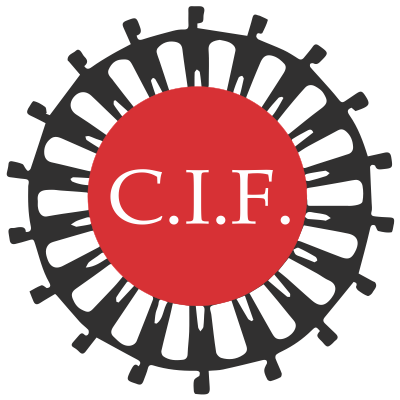An association for the development of international exchanges of professionals in the social field
CIF-France is a 1901 law association, founded in 1966. It is the French branch of the Council International Fellowship (CIF-International) created in 1962.
The vocation of the CIF is to promote international exchanges of social workers (social workers, educators, socio-cultural workers, psychologists, etc.), and to allow, beyond cultural differences, a mutual understanding that promotes the development of international understanding through the exchange of professional experience.
In concrete terms, this means exchange programmes for professionals in the social field who go to confront their professional practice in another country, which gives them, back home, new perspectives.


The CIF France team at the CIF International congress in Finland
Our values
- Universalism or the choice of an opening to the world; a philosophy of professional or voluntary intervention;
- Humanism or the bet of the human being at the heart of any action, respect for the individual as an actor capable of transformation;
- Tolerance or respect for others in their cultural and societal differences;
- Friendship or the fraternal aspect of the associative approach;
- Solidarity or the need to take into account singular or collective situations when making strategic and technical choices;
- Commitment or assumed investment of the association’s actors;
- Finally, Peace as an end in the minds of creators, and that of today’s actors.
Beyond the sharing of professional experiences, the purpose of intercultural exchanges is to promote international friendship, understanding and respect for others, their culture, tolerance of diversity, and ultimately peace.
Goals
The primary mission of the CIF is to promote international exchanges of social workers (social workers, psychologists, educators, animators…), professionals and volunteers, and to allow beyond cultural differences, a mutual understanding that promotes the development of international understanding through professional exchanges. The overall objectives are to create conditions conducive to international and intercultural exchanges and to foster professional development.
The means implemented:
- The discovery and confrontation with other professional practices during the immersion time in the social structures of the host country, and the exchanges with the professionals and volunteers met.
- The meeting, the sharing with other participants of the program from different countries.
- Reception and accommodation with motivated French families.
Some photos of exchanges with CIF-France
Governance
The associative governance is ensured by an office and a board of directors composed of 25 active volunteer members. The general assembly takes place every year in January.
The office is composed of:
- The president is Mireille Boucher (St Florent sur Cher- 18)
- The vice-présidente is Sonia Panafieu (Mandagout-30) in charge for welcoming foreign participants.
- Treasurer: Régine Dubery ( Noes Pres Troyes-10)
- Deputy Treasurer : Béatrice Lacassagne (Le Bouscat-33)
- Secretary: Nadine Rogue ( Paris-75)
- Alice Chavannes (Strasbourg-69) in charge of the departure of the French abroad
- Marie-Thérèse Martin (St Florent-18) social house
- Margaret Longuevre Member
Update 10Th February 2024
Join us
Any professional in the social field who has participated in a CIF or CIP program is an automatic member for the first year following the period of return. The status of member is maintained from the payment of an annual membership fee of 30€ to CIF-France (2018’s Fee). Host families and partners may be members as associate members. This contribution makes it possible to receive not only the information specific to CIF-France but also the “World News”, the annual review of CIF-international.
CIF-France (Council of International Fellowship) is a 1901 law association created in 1966. It is the French branch of CIF International created in 1962 by former participants of CIP Cleveland, Ohio (USA).
The history of the CIF is linked to the history of Dr Henri B. Ollendorff, a doctor of law and labour lawyer in Germany, who emigrated to the United States in 1938 to escape Nazism. Having been unable to work in his host country, and interested in youth, he entered a school of social work in New York where he participated in children and youth programs. He has the idea of creating an international programme “Where youth leaders and social workers from many countries could come together to prevent the horrors of war from happening again”. He founded the CIP (Council International Programs). The first international program was held in Cleveland in 1956. In 1962, the former participants of these programs, wishing to share this spirit of fraternity, founded the CIF (Council International Fellowship). Since then, more than 30 countries in Asia, Africa, Europe, the Middle East, North and South America and Oceania have established branches or have contact persons. CIF-France, in this spirit, was created in 1966. Since its creation, the association has remained very active with its network of volunteer members throughout France representing different regions.
Since 2005, CIF-France has become a partner in European programmes: Léonardo and then Erasmus+, which promote the exchange of practices between professionals in the social field and users between countries.
The association has participated in 4 programmes initiated by universities or municipalities in European countries, associations specialised in social support, and various social services competent on issues related to the theme of the programme.
CIF-France was called upon, because of its field expertise on social work issues, its experience in professional exchanges, its ability to mobilize a network both locally and internationally, its ability to exchange in English; common language of the participants in each of the programs.
Our association has taken advantage of these professional exchange opportunities, because they are in line with the missions and values of CIF-international, and because the issues studied relating to physical and psychological disability and childcare are within its competence.
These programmes last several months, alternating meetings in the field in the various participating countries with the participation of users, and documentary work.
They are a pool of experience that allows a better understanding of the practices specific to each country concerned, as reflected in their respective cultures and legislation.
